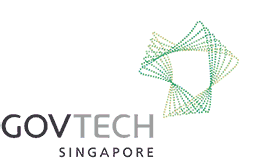Overview
GovTech is responsible for the delivery of the Singapore government's digital services to the public. It is the agency that provides the infrastructure to support the implementation of the country's Smart Nation initiative to utilise infocomm technologies, networks and big data to create tech-enabled solutions. [6] [7]
The Government Chief Information Office (GCIO) is under GovTech.
Its sub-unit Open Government Products (OGP) develops pieces of software for the government. As of 2022, Lee Hsien Loong's son Li Hongyi serves as the director of OGP. [8]
History
On 1 May 2017, GovTech was moved from the Ministry of Communications and Information to the Prime Minister's Office (Singapore) (PMO). It is now the implementing agency of PMO's Smart Nation and Digital Government Office (SNDGO). [9]
On 1 June 2023, Goh Wei Boon replaced Kok Ping Soon as the chief executive of GovTech. Goh was previously the CEO of the Centre for Strategic Infocomm Technologies. [10] [11]
In September 2023, following claims on Reddit that GovTech had made offers of employment to about 60 former Indeed employees who had recently been laid off at "inflated" salaries and that the new hires had "no deliverables", GovTech confirmed that it had hired 60 former employees of Indeed. It explained that it had taken "a more agile hiring approach that balances speed with responsible hiring" and that every candidate had been interviewed as part of the hiring process and the remuneration offered took into consideration the candidates' equivalent grades within Indeed. [12]
This page is based on this
Wikipedia article Text is available under the
CC BY-SA 4.0 license; additional terms may apply.
Images, videos and audio are available under their respective licenses.
